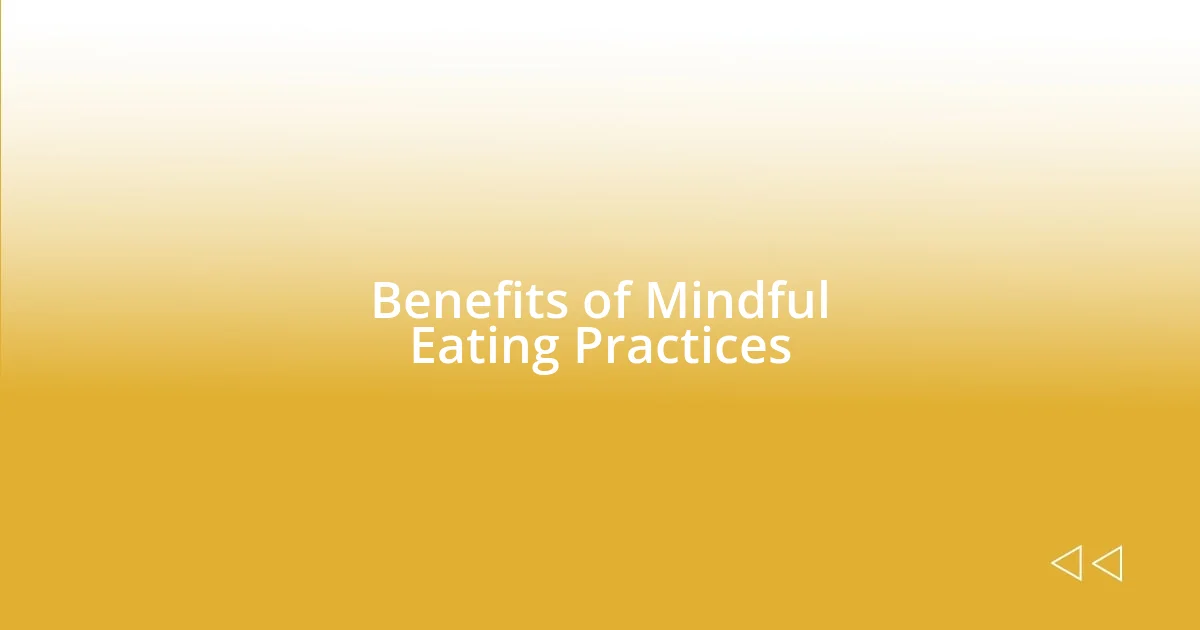Key takeaways:
- Diet significantly influences dream content; healthier meals tend to produce calmer, more insightful dreams, while high-sugar foods may lead to chaotic, emotional dreams.
- Effective strategies for coping with fast food cravings include staying hydrated, mindful snacking, setting indulgence limits, visualizing consequences, and cooking at home.
- Improving sleep quality involves creating a relaxing bedtime routine, optimizing the bedroom environment, and maintaining a consistent sleep schedule for better energy and motivation.

How Diet Influences Dream Content
Isn’t it fascinating how what we eat can seep into our dreams? I once indulged in a midnight binge of cheesy nachos, and that night, I dreamt I was navigating a gooey cheese-filled landscape. The vividness of my dream made me ponder—could my dietary choices be crafting these surreal experiences?
Diet has an undeniable impact on the chemical processes in our brain that create dreams. For instance, consuming high amounts of sugar might lead to more erratic and emotional dreams. I remember a week when I was overly generous with candy, resulting in chaos in my dreams—flying through wild, colorful worlds but feeling anxious at every turn. It left me questioning: is my subconscious reflecting the highs and lows of my sugar habits?
On the other hand, I noticed that after a week of lighter, healthier meals, my dreams transformed as well. They became calmer and more insightful, filled with peaceful landscapes and meaningful conversations rather than frantic adventures. This made me reflect on how a balanced diet not only nourishes the body but arguably soothes the mind, shaping the content of our dreams into something more harmonious. Have you ever reflected on what your dreams might say about your recent meals?

Coping with Fast Food Cravings
When fast food cravings hit, I often find myself in an internal tug-of-war. One moment, the thought of crispy fries or a juicy burger feels irresistible, yet I know those choices can affect more than just my waistline. It can take a toll on my dreams too. I’ve discovered that acknowledging my cravings without succumbing to them helps me regain control.
Here are some strategies I use to cope with fast food cravings:
- Stay Hydrated: Sometimes thirst masquerades as hunger. I keep a water bottle handy to sip on throughout the day.
- Mindful Snacking: I opt for healthier snacks like nuts or fruit when cravings strike. It satisfies my hunger without the crash that follows junk food.
- Set Limits: I allow myself a specific day to indulge, making it a treat rather than a routine. It creates excitement without guilt.
- Visualize: I find that picturing the aftermath of eating fast food—feeling sluggish or experiencing vivid dreams reflecting my food choices—helps curb my desire.
- Cook at Home: Trying to recreate a favorite fast food meal with healthier ingredients keeps the cravings at bay and makes me feel empowered in the kitchen.
It’s always a balancing act between enjoyment and health, but these techniques have really made a difference for me.

Techniques for Better Sleep Quality
As I’ve navigated through the journey of improving my sleep quality, I’ve discovered some effective techniques that really made a difference. First off, creating a relaxing bedtime routine has been crucial. I used to scroll through social media late into the night, but once I shifted my focus to calming activities, like reading or gentle stretches, I noticed I fell asleep faster and woke up feeling more refreshed. It’s almost like my mind was training to unwind at a certain time, making the transition into sleep less jarring.
Another technique that I swear by is keeping my bedroom environment optimized for sleep. I invested in blackout curtains and adjusted the thermostat, finding the sweet spot for cooler temperatures made naps feel rejuvenating. One night, I forgot to turn off my phone’s notifications, and the disturbances reminded me just how vital a quiet space is. It’s amazing how small changes, like eliminating noise or dimming lights, can significantly enhance the quality of my rest.
Lastly, I found value in sleep consistency. Sticking to a regular sleep schedule has transformed my mornings. Initially, it felt a bit challenging, especially on weekends, when staying up late seemed enticing. But as I prioritized going to bed and waking up at the same time, my body naturally adjusted. I realized that adhering to this schedule not only improved my sleep quality but also impacted my day-to-day energy levels, making me feel sharper and more motivated.
| Technique | Description |
|---|---|
| Relaxing Bedtime Routine | Incorporate calming activities to signal your body that it’s time to wind down, like reading or meditating. |
| Optimize Bedroom Environment | Adjust temperature, lighting, and noise levels to create a restful sleep atmosphere conducive to relaxation. |
| Sleep Consistency | Go to bed and wake up at the same time every day to help regulate your body’s internal clock. |

Benefits of Mindful Eating Practices
Mindful eating practices can truly transform the experience of dining, especially when fast food cravings are at play. I remember a time when I mindlessly devoured a burger without realizing how it made me feel afterward. By slowing down and savoring each bite, I realized I could enjoy my meal without the usual regret. Isn’t it fascinating how taking time to appreciate our food can enhance not just our physical health but also our emotional connection to what we consume?
Embracing mindfulness while eating allows me to listen to my body’s cues more intuitively. For instance, I often pause during my meals to assess my hunger levels. If I’m only slightly hungry, I might choose a smaller portion and save the rest for later. This practice has helped me avoid that uncomfortable overstuffed feeling that can linger long after the meal—and sometimes disrupt my dreams. Have you ever noticed how the food choices we make impact our sleep and overall well-being?
There’s also something powerful about gratitude in mindful eating. I like to take a moment before my meal to appreciate the flavors and ingredients. This simple act not only enhances the enjoyment of my meal but also fosters a deeper respect for the food on my plate. One evening, as I sat with a wholesome homemade version of my favorite fast food dish, I felt a wave of satisfaction and pride. This emotional connection has made my eating experience much richer and has encouraged me to seek out healthier food options consistently. Have you considered how expressing gratitude for your meals may change your perception of food entirely?















